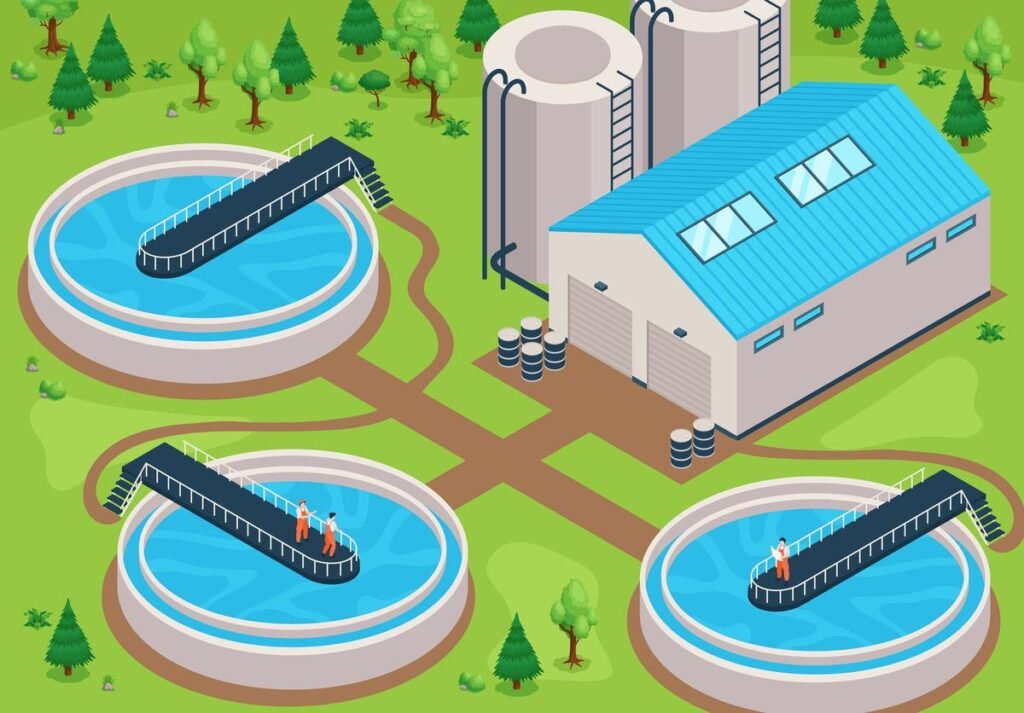A sewage treatment plant contractor is a professional specializing in the design installation and maintenance of sewage treatment systems. Their expertise ensures that your system meets regulatory standards. It also operates efficiently and handles waste effectively. In this article, you’ll learn how to identify the best contractor for your specific needs. We’ll guide you through evaluating their experience. Checking qualifications is important as is comparing quotes. You’ll also discover how to assess their technical skills. Project management capabilities and post-installation support are crucial as well.
Evaluating Contractor Experience and Specialization
Look for contractors who have a proven track record in handling projects similar to yours. If you need a small-scale system a residential area contractor with extensive experience in residential projects will be more suitable. This is better than one who primarily works on large industrial systems. Consider contractors who are familiar with the specific type of sewage treatment technology you require. This includes options such as aerobic or anaerobic systems.
Some contractors may specialize in advanced technologies like membrane bioreactors, which could be advantageous for complex needs. Check their project history. A contractor who has completed multiple projects of your scale and complexity is likely to handle your project efficiently. Ask for a portfolio or detailed descriptions of past projects to verify their capability and ensure their experience aligns with your requirements.
Checking Qualifications and Certifications
Confirm that the contractor holds the necessary licenses to operate in your area. Check for certifications related to specific treatment technologies. If you’re installing a system with advanced filtration, a certification in that technology shows the contractor’s expertise. Make sure that these qualifications are current, as standards and technologies frequently evolve. This diligence will help you avoid issues with compliance and system performance down the line.
Reviewing Past Projects and References
Ask the contractor for a portfolio or case studies of previous sewage treatment installations. This should include details like project scope, challenges faced, and outcomes achieved. Next, contact previous clients to get firsthand feedback. Ask them about their overall satisfaction with the contractor’s work, adherence to timelines, and responsiveness to issues. Inquire whether the contractor addressed any maintenance or operational problems promptly after installation. Visit completed projects if possible. Seeing the contractor’s work in person can provide insights into the quality of their installations and their ability to handle similar projects.
Assessing Technological Expertise and Equipment
Check if the contractor is knowledgeable about the latest treatment technologies. These include advanced oxidation processes and membrane bioreactors. Confirming this ensures they can offer efficient and current solutions. Assess the condition and quality of the equipment they use. Reliable equipment is essential. Well-maintained equipment can prevent future issues and ensure smooth operation.
Ask about the brands and models of their treatment units and whether they follow manufacturer guidelines for installation and maintenance. Inquire if the contractor is adept at integrating new technologies with existing systems. Their ability to seamlessly incorporate innovative solutions can significantly impact the performance and longevity of your sewage treatment plant.
Comparing Quotes and Cost Transparency
Obtain detailed quotes from several contractors to see how their pricing stacks up. Look for transparency in how the costs are presented. A clear quote with itemized costs helps you identify where your money is going and ensures there are no hidden fees. Ask about potential extra costs for unforeseen issues or changes in scope. Consider the value offered, not just the price. A lower cost might come with compromised quality or fewer services. Weigh the cost against the contractor’s expertise, equipment, and the overall project scope to make an informed decision.
Evaluating Project Management and Communication Skills
Assess the contractor’s ability to manage project timelines and resources efficiently. Inquire about their project management approach and tools used to track progress. Evaluate their communication skills by observing how promptly they respond to your queries. Good communication ensures that you stay informed about the project’s status and any issues that arise.
Ask about their process for handling changes or unexpected challenges. A contractor who is proactive and flexible in addressing problems will help keep the project on track. Effective project management and communication can make a significant difference in ensuring your sewage treatment plant is installed correctly and on time.
Understanding Warranties and Post-Installation Support
Warranties protect you from defects or issues that may arise after installation. Ensure the contractor provides a comprehensive warranty covering both parts and labor. Check the warranty duration and any conditions that might affect its validity. Post-installation support is equally important. Confirm the contractor’s availability for maintenance and emergency repairs.
A reliable contractor should offer ongoing support. This support is important to address any operational problems or system adjustments needed after installation. Inquire about the response times for service requests. Also, ask about the costs associated with post-installation support. Clear terms for both warranty and support will help you avoid unexpected expenses. This clarity will ensure that your sewage treatment plant remains operational and efficient over time.
Examining Safety Practices and Environmental Compliance
Make sure the contractor adheres to local and national safety regulations. This includes proper handling of hazardous materials and maintaining safety protocols on site. Verify their commitment to environmental regulations. The contractor should follow guidelines for waste disposal, emissions, and water quality standards. Check if they have experience with environmentally friendly technologies or methods. Ask about their safety training programs and certifications for staff. A contractor who prioritizes safety will likely have well-trained personnel and strict safety procedures in place.
Key Takeaway
The right sewage treatment plant contractor involves weighing multiple factors. After reviewing experience, qualifications, and quotes, consider the overall value each contractor offers. Focus on their expertise, reliability, and how well they align with your project needs. Examine all aspects of the company, including past performance, pricing transparency, and the strength of their warranties and support. Ensure they have solid safety practices and environmental compliance.
Make a decision based on who provides the best balance of cost, quality, and service. Don’t rush; take time to evaluate all the information and trust your judgment. Choosing the right contractor is crucial for a successful sewage treatment system that meets all your requirements and operates efficiently for years to come.







More Stories
Childish Clothing And Childish
Elegant Kitchen Remodeling Services
Gallery Dept shirt represents more than just an article of clothing